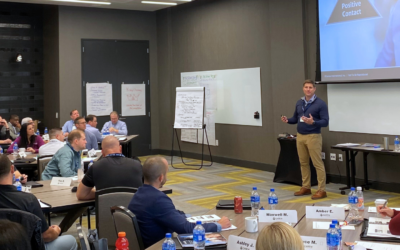Unique nimbleness. What does that phrase mean to you? An article published on Inc.com yesterday states that unique nimbleness is the competency leaders must sharpen to retain workers and survive the Great Resignation.
Unfamiliar With the Great Resignation?
According to data from the U.S. Bureau of Labor Statistics, some four million people quit their jobs in April, the highest number in 20 years. Additionally, research from Microsoft shows that 41% of the global workforce is likely to consider leaving their current employer. Their 2021 Work Trend Index states, “With so much change upending people over the past year, employees are reevaluating priorities, home bases, and their entire lives.” Can you relate? Further, have you asked yourself any of the following questions lately?
- Am I happy in my current role?
- Is my work rewarding?
- Does my employer recognize and meet my needs?
If you have, it’s likely your sales team members have, too. And it’s your responsibility to gauge the shift in your team and understand their new expectations, or you risk losing them.
People Don’t Leave Companies, They Leave Bosses
The previously mentioned Inc.com article states, “Nine times out of 10, a decision on whether an employee will stay or go hinges on the relationship with their leader.” (This point is not made to put undue pressure on the shoulders of sales leaders, but it’s a relevant note to keep top of mind when thinking about talent retention.) Many leaders, however, believe they will not be subject to this Great Resignation. As offices reopen, bosses assume their people will return, full-time or part-time, without skipping a beat. Human resources software company TINYpulse surveyed 770 companies worldwide and found that a quarter of leaders expect no employees to quit once COVID restrictions lift.
So, it seems many leaders are out of touch with their employees and could, unfortunately, face challenges if they don’t change the way they work with their team members. This is where nimbleness comes into play. Leaders must not only take the time to listen to their employees’ wants and needs, but also take actionable steps to meet them where they are.
What Can You Do?
Fast Company discusses some options, but listening to your employee(s) and understanding why they decided to leave is most important. “Instead of asking how we can make them stay, if we ask, ‘What are you looking to do next?’ and truly listen to the answer, we can learn a lot.” The article continues, “Welcoming the Great Resignation means truly listening to our employees who are checked out, tired, or just need to mix it up a bit and helping them find new inspiration.”
This doesn’t necessarily mean encouraging your employees to leave you; we all know the cost of losing talent. It means you should embrace the idea that your employees mean more to you as human beings than just talent or a salary. If they’re unhappy, they won’t be doing the work you need anyway.
So, listen to them and practice unique nimbleness, even if it means moving outside your traditional leadership paradigms. Can you reconfigure your rep’s current role? Move them into a different part of the company that refreshes them? Do they need words of affirmation, or a new project that allows for growth opportunities? And, if an employee is truly ready to go, how can you encourage their next steps? Remember: agility is everything.
Be the leader that truly listens to their people, adjusts appropriately to individual needs, and meets team members where they are. This is how you will survive the Great Resignation.





